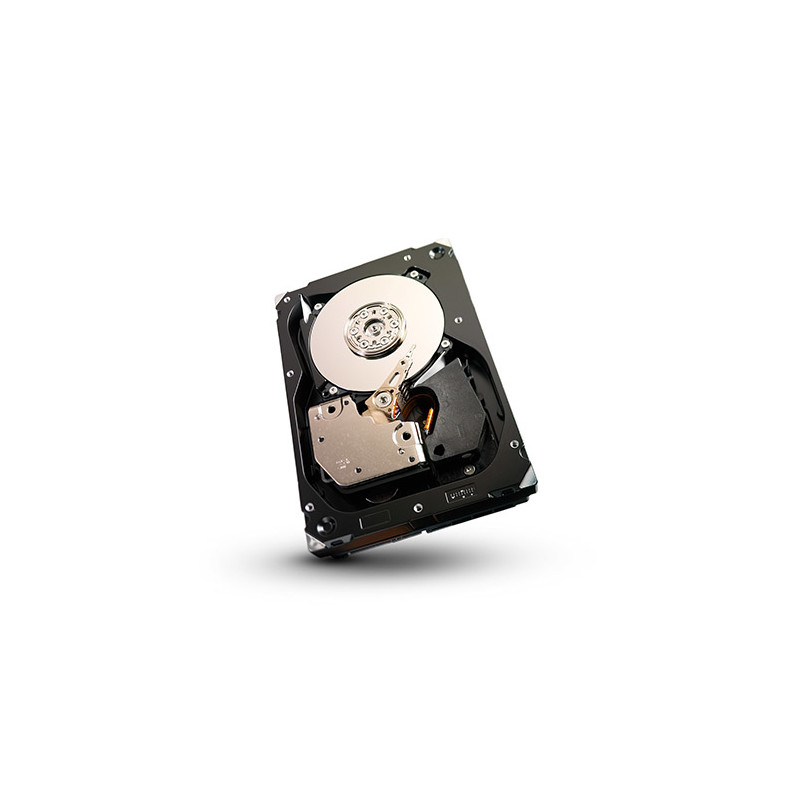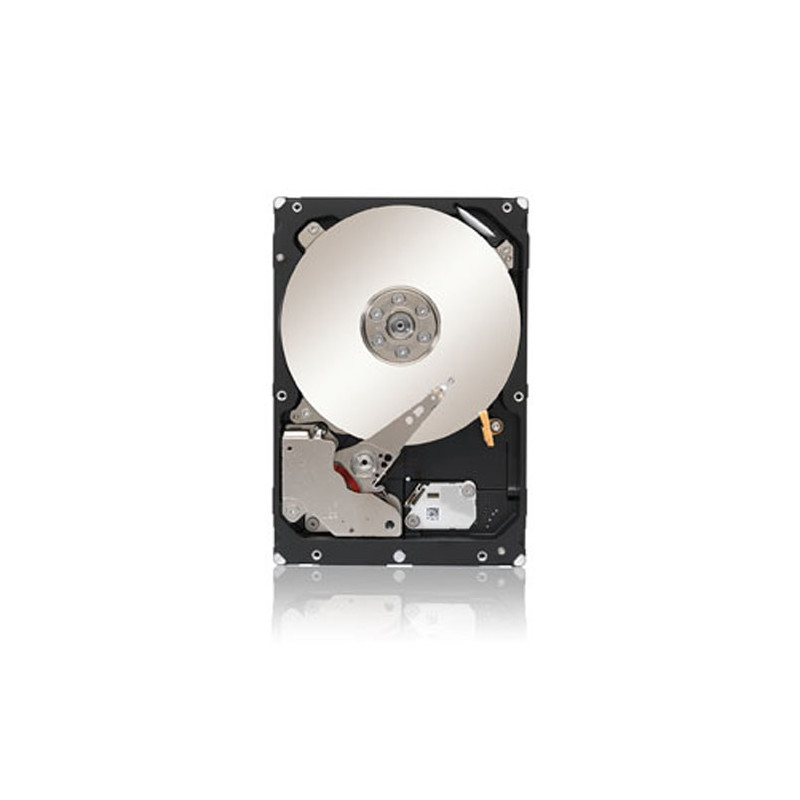Server SSD
What is a Server SSD?
A server solid-state drive (SSD) is a type of storage media specifically designed for use in server platforms or servers. On the other hand, solid-state drives (SSDs) are not the same as traditional hard disk drives (HDDs), which use spinning disks and a mechanical arm to read or write data to the computer's disk. Instead, SSDs store data in flash memory. SSDs can become faster, more dependable, and more efficient, which is clear evidence of why most systems choose to use Solid-state drives.
How Server SSDs Work
Server SSDs are specific to server usage, unlike the SSDs that are built into consumer electronics. Here’s a detailed breakdown of how they work:
Flash Memory: Knowing SSDs use NAND flash memory to store data, it became apparent that this was the case with the desktop computer under analysis. NAND flash is a kind of non-volatile memory, which means the data stored in it remains intact even without a power supply.
Controller: As usual, the SSD contains a controller in charge of the flash memory entries. Other functions controlled by the controller include writing mapping, which distributes writes evenly across the drive and erase mapping, which deletes files to free space while correcting errors.
Interface: Server SSDs are interfaced to the server via specific bus interfaces, such as SATA, SAS, or NVM. NVMe SSDs are high-performance because they have lower latency and higher throughput than commonly used SATA and SAS.
Data Access: Hard drives use mechanical movement, while solid-state drives directly command the data into use, which speeds up the retrieval process.
Benefits of Server SSDs
Solid-state drives (SSDs), a relatively new storage technology, offer faster read and write rates than hard disk drives (HDDs). Faster access to data results in faster application running, which is why this performance boost is so essential, especially for servers that require high performance.
The absence of moving elements in solid-state drives (SSDs) minimizes the possibility of physical failure. This level of durability is essential for servers that are required to function continuously and without problems.
In addition, solid-state drives (SSDs) offer improved response times for data access. Databases and virtualization are two examples of applications that can benefit from this application because they require real-time data processing.
Solid-state drives (SSDs) are more energy-efficient than hard disk drives (HDDs), which could result in lower energy consumption expenses and less heat output, ultimately leading to more efficient servers.
Because they are resistant to physical shock and vibration, solid-state drives (SSDs) are the perfect equipment for demanding handling.
Another advantage of solid-state drives (SSDs) is that they do not have any moving components, meaning they do not generate noise. This is a significant advantage because noise may be disruptive in data centers.
Industries Served
Data Centers:
Solid-state drives offer the performance necessary for expanded functionality and the reliability required for data centers. Their incredible speed is essential when processing massive amounts of data or supporting applications like cloud services or extensive data analysis is needed.
Financial Services:
The trading platforms, real-time transaction processing, and massive data analytics utilized in the financial industry depend on solid-state drives (SSDs). In this sector, every millisecond and microsecond is of critical importance. Solid-state drives (SSDs) perform similarly to the financial sector's demand.
Healthcare:
Healthcare industry enterprises can effectively use solid-state drives (SSDs) when dealing with huge amounts of medical data, such as imaging files and patient information. The improved access and high levels of reliability offered by SSDs benefit patients and organizations.
Telecommunications:
Solid-state drives (SSDs) are critical in telecommunications because they support the network and manage enormous data flow. A network architecture uses them to store and process data, ensuring a continuous flow of communication services.
E-commerce:
Solid-state drives (SSDs) improve load times, customer experiences, and the volume of retrieved data when used in developing websites for online retailers and e-commercial enterprises.
Gaming:
Optimized architecture is essential for online gaming platforms and game development. Compared to other types of storage devices, like hard disk drives, optimized architecture achieves faster load times, better latency, and overall performance, which helps to improve the overall gaming experience for end users.
Media and Entertainment:
The media and entertainment industry extensively uses SSDs for various tasks, such as managing huge media assets, video editing, and streaming. For this reason, the rapid access speeds of solid-state drives (SSDs) are essential for managing and processing high-definition video and graphics.
FAQ for Server SSDs
What is a server SSD?
A server SSD (Solid State Drive) is a high-performance storage device for server environments. Unlike traditional hard drives, SSDs use flash memory to store data electronically, resulting in faster data access speeds and excellent reliability.
How do server SSD drives differ from consumer SSDs?
Server SSD drives are specifically engineered for the rigorous demands of data centres and enterprise applications. Unlike consumer SSDs, they typically offer higher endurance, extraordinary performance, and advanced features such as enhanced error correction and higher capacity options.
What should I consider when choosing an SSD for a server?
When selecting an SSD for a server, consider factors such as capacity, speed (read/write performance), endurance (TBW or DWPD ratings), interface type (SATA, SAS, NVMe), and compatibility with your server hardware. Enterprise SSDs often provide better performance and durability compared to consumer-grade SSDs.
What is a dedicated server SSD?
A dedicated server SSD is an SSD exclusively allocated to a specific server. This setup enhances performance by avoiding the shared resources found in traditional storage solutions. It is ideal for high-performance applications requiring consistent speed and reliability.
What is an enterprise SSD for servers?
Enterprise server SSDs are designed for high-demand environments, offering superior performance, endurance, and reliability. They are built to handle heavy workloads and continuous operations, making them suitable for data centres, large-scale databases, and mission-critical applications.
Where can I find a cheap SSD for a dedicated server?
While cheap SSD dedicated servers can be found online and through various retailers, it is crucial to ensure they meet the performance and reliability standards required for server use. Look for deals from reputable brands and check reviews to balance cost with quality.
What is a Dell server NVMe SSD?
A Dell server NVMe SSD is an NVMe (Non-Volatile Memory Express) SSD designed for use in Dell servers. Compared to SATA SSDs, NVMe SSDs offer high-speed data transfer rates and lower latency, making them suitable for high-performance and data-intensive applications.
What types of SSDs are available for Dell servers?
Dell server SSDs support various SSD types, including SATA SSDs, SAS SSDs, and NVMe SSDs. Your choice depends on your performance requirements, budget, and the Dell server's specific model.
What is a Samsung server SSD?
A Samsung server SSD is a solid-state drive manufactured by Samsung, designed for use in server environments. Samsung offers a range of server SSDs, including SATA, SAS, and NVMe models, known for their high performance, reliability, and advanced features.
What is the advantage of having a server with SSDs?
Servers with SSDs benefit from faster data access speeds, reduced latency, improved reliability, and lower power consumption than traditional HDDs. This leads to better overall performance, quicker application load times, and increased efficiency.
What is the price of a 1TB server SSD?
The price of a 1TB server SSD price can vary widely depending on the brand, type (SATA, SAS, NVMe), and performance characteristics. On average, you might expect to pay between $100 and $500 for a 1TB SSD, with enterprise-grade models often being more expensive.
Where can I buy a 1TB SSD for a server?
1TB SSD servers can be purchased from various sources, including online retailers like Amazon and Newegg and specialized server hardware vendors. It is essential to choose a reputable seller and ensure the SSD is compatible with your server.
What is the difference between a 1TB SSD server drive and a 2TB SSD server?
The primary difference between a 1TB SSD server drive and a 2TB server drive is their storage capacity. A 2TB SSD provides twice the storage space of a 1TB SSD, allowing more data to be stored and managed. The choice between them depends on your storage needs.
What are the options for 4TB and 8TB server SSDs?
4TB server SSDs and 8TB server SSDs are available in various interfaces, such as SATA, SAS, and NVMe. They offer higher storage capacities suitable for applications with large data requirements. These larger-capacity SSDs can be used in enterprise environments for extensive databases, big data analytics, and high-performance computing.
What is the best SATA SSD for servers?
The best SATA SSD for servers typically combines high performance, reliability, and endurance. Leading options often include models from brands like Samsung (e.g., Samsung 860 Pro), Crucial (e.g., Crucial MX500), and Intel. When selecting, consider the specific needs of your server environment and read reviews for the latest recommendations.


